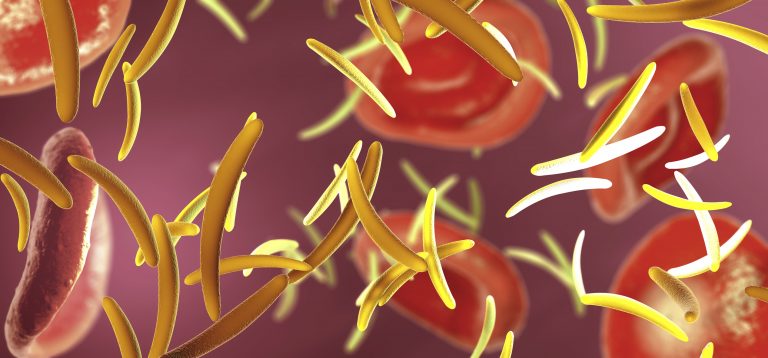
A new strategy intended to fight off malaria may have broader implications against other infectious pathogens. Traditionally, malaria drugs target molecules within disease-causing parasite Plasmodium, of which P. falciparum is the most lethal in humans. In a new study in Nature Communications, a research team led by RMIT University in Australia showed that enzymes—specifically, kinases found in human red blood cells—become activated during malaria infection.
“These protein kinases are highly effective in killing the parasite and represent an alternative to drugs that target the parasite itself,” the authors conclude.
The new treatment approach offers a potential new way of warding off infection not only from malaria but other diseases caused by infectious agents.
Activity in MAP kinase pathway
Researchers studied the molecules involving in signaling in host erythrocytes, or red blood cells, after infection with a variety of Plasmodium strains. They developed an antibody array of 878 antibodies targeted against a variety of human signaling proteins in red blood cells and their phosphorylation status to see which became activated during three stages of parasite development.
Their analysis revealed key interactions between parasite and host during infection, particularly those involving MEK-1, the human growth factor receptor c-MeT and the MAP kinase pathway component B-Raf. Selective inhibitors of those molecules appeared particularly potent against P. falciparum and P. knowlesi in cell studies. In mice infected with malaria, a c-MeT inhibitor impaired growth of P. berghei.
“This study provides a proof of concept that human signaling kinases identified as activated by malaria infection represent attractive targets for antimalarial intervention,” the author conclude in their paper, “The markedly impaired proliferation of P. berghei in a murine malaria model treated with the c-Met inhibitor PHA-665752 shows that targeting host kinases to control malaria infection in vivo is achievable, strengthening the case for kinase-focused host-targeted intervention.”
Repurposing cancer medications against malaria
The antibody array revealed that many of the same kinases activated in red blood cells are active in malignancy. This discovery points to a re-look of existing cancer drugs known to inactive the kinases as potential antimalarials.
The authors hope this new malaria treatment approach may slow drug resistance for a disease notoriously plagued by increasing resistance to effective therapies.
“By targeting the host and not the pathogen itself, we remove the possibility for the pathogen to rapidly become resistant by mutating the target of the drug, as the target is made by the human host, not the pathogen,” says lead author Christian Doerig.
Next Stop: COVID-19?
Finding an effective treatment approach for malaria, a disease that leads to the deaths of an estimated 445,000 people every year, mostly young children in sub-Saharan Africa would be a major advance. And, the strategy may have prospects for other infectious diseases.
Researchers hope to exploit this discovery as a basis for fundamental research into host–parasite interactions – particularly through study of activated human enzymes after infection to find new drug treatments for other diseases, such as COVID-19.
“This has proven successful for other human pathogens including malaria and Hepatitis C virus, and there are now very real prospects to use it to discover novel drug targets for Hepatitis B and COVID-19,” says Peter Revill, Senior Medical Scientist at the Peter Doherty Institute for Infection and Immunity in Australia.
Doerig’s team will now collaborate with the Doherty Institute to investigate potential COVID-19 treatments using this approach.













